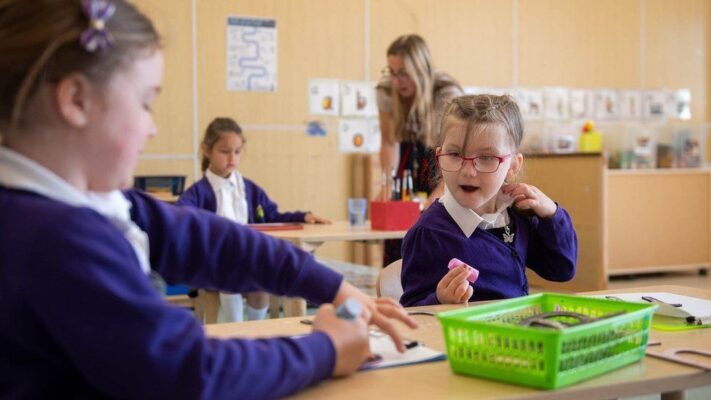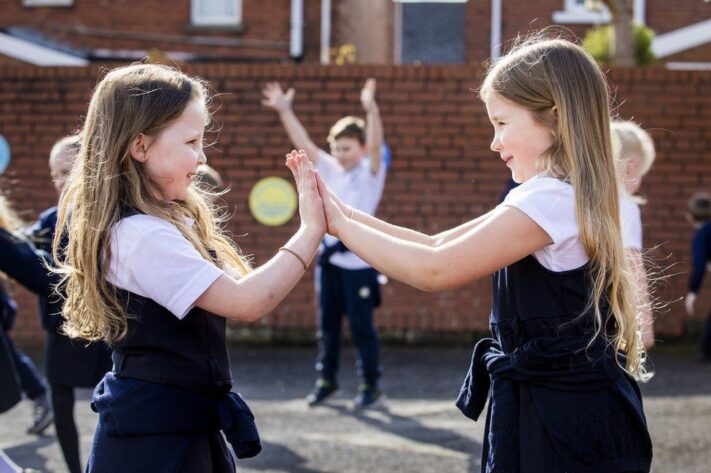
Primary 1 to Primary 3 pupils retured to school on Monday, March 8
That follows a decision taken by the Executive at its meeting on 16 March.
Primary pupils in P4 to P7 will join those in P1 to P3 who returned to school on 8 March.
Pupils returning on Monday have not been in school since before Christmas, their second prolonged absence from the classroom in a year.
They will attend school for at least a week before many schools begin Easter holidays.
It is planned that the remaining pupils in years 8 to 11 in post-primaries will return on the 12 April after the Easter break, though that is subject to a review by the Executive.
Keith Wisener, principal of Whiteabbey Primary School, told BBC’s Good Morning Ulster he was “delighted” to be welcoming pupils back to class.
“We are ready, we have made the effort because we know it’s good for our children”, he said, adding, “when we hopefully get back [after Easter] on 12 April we’ll be fired up and ready to go.”
Jane Thompson from charity Parentkind said it is a “very good morning” for pupils and parents, many of whom are concerned for their children’s mental health and wellbeing.
Ms Thompson said there needs to be “more focus on the wellbeing recovery and not so much focus on the academic” in the run up to Easter.
There will be mass Covid testing in post-primary schools – with year 12 to 14 pupils and staff asked to test themselves at home twice a week.
After objections from teaching unions, staff will not have to carry out tests on pupils when they return.
Instead, schools are being asked to “familiarise” pupils with the Lateral Flow Device (LFD) tests to enable them to take the tests at home.
Testing will be rolled out to staff in primary and pre-schools after Easter.
The Department of Education (DE) also said that post-primary pupils must wear face masks in classrooms when they return.
Schools are expected to calculate grades to enable pupils in years 12 to 14 to gain GCSE, AS and A-level and BTEC qualifications this summer.
Some pupils may sit in-class tests provided by the Northern Ireland exams board CCEA to help schools gain evidence for grades.
However, work pupils have completed at home can be used as evidence by schools when deciding grades.
 The department has advised schools that breakfast clubs, after school activities and sports fixtures between schools should not take place until after Easter, at least.
The department has advised schools that breakfast clubs, after school activities and sports fixtures between schools should not take place until after Easter, at least.
Some experts have expressed concerns about the impact of children being out of school and children’s sport being banned.
The President of the Royal College of Paediatrics and Child Health, Prof Russell Viner, previously told MPs that “when we close schools we close their lives”.
Education Minister Peter Weir has said a return to school had been prioritised by the Executive because of the many benefits it brings to children.
However, some principals and teaching unions have been critical of the short notice they have received about major changes to previous plans for the return of pupils.
Tags:




